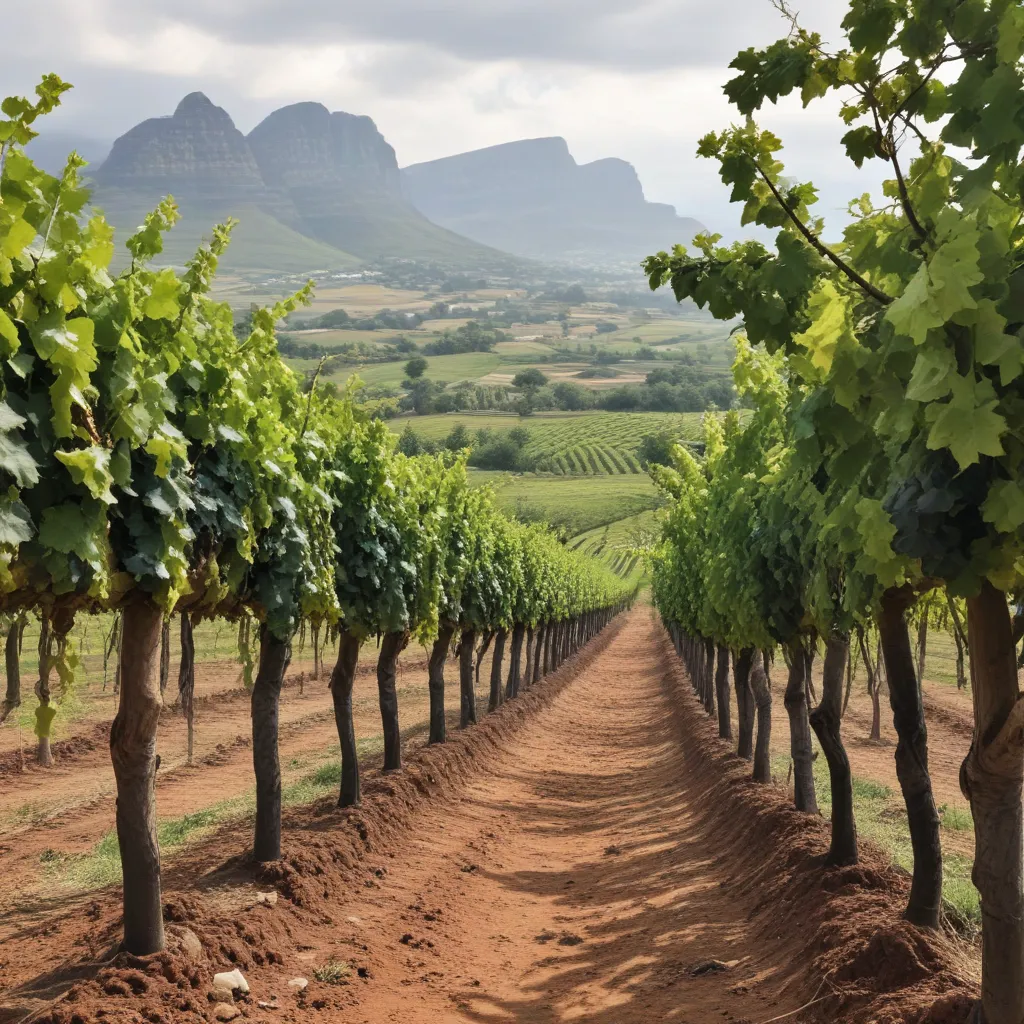
How Climate Change Threatens South Africa’s Wine Industry
The rolling vineyards and celebrated vintages of South Africa’s wine country face an uncertain future as the global climate continues to shift. From the sun-kissed slopes of Stellenbosch to the breezy Constantia valley, the country’s renowned wine regions are grappling with the profound impacts of rising temperatures, changing precipitation patterns, and escalating extreme weather events – all driven by the relentless march of climate change.
South Africa’s wine industry, a source of domestic pride and a significant contributor to the national economy, produced 934 million liters of wine in 2023, of which 306 million liters were exported, generating approximately R10 billion in revenue. But this critical agricultural sector is under threat, as the very natural conditions that have fostered its success for centuries are now being disrupted in ways that challenge the industry’s resilience and adaptability.
Shifting Climatic Conditions
At the heart of the matter are the dramatic changes in temperature and precipitation that are redefining the terroir – the distinct environmental characteristics that impart unique flavors and aromas to a wine. Across South Africa’s major wine regions, growers are witnessing earlier grape harvests, with some areas seeing their picking seasons move forward by two to three weeks compared to just 40 years ago. This disruption to the seasonal cycle can have far-reaching implications, from altering labor patterns that rely heavily on migrant workers to destabilizing the delicate balance of flavors that distinguish the country’s renowned vintages.
Adding to the challenge, climate change is also making rainfall patterns increasingly erratic, with prolonged droughts and sudden, intense downpours becoming more frequent. This volatility not only reduces yields and leads to crop losses but also shatters the predictability that is essential for wine growers to plan their planting and harvesting activities. As Duncan Miriri, a South African journalist, observed, “Climate change is expected to make rainfall patterns more erratic, leading to increased occurrences of droughts and floods. Such volatility not only results in diminished yields and crop losses but also threatens predictability – and farmers rely on predictability to plan planting and harvesting.”
Adaptation Strategies
In the face of these daunting challenges, South Africa’s wine producers are exploring a range of adaptation strategies to safeguard their industry. One promising approach is the cultivation of more heat- and drought-resistant grape varieties, such as Assyrtiko and Marselan, which are better equipped to thrive in the hotter, drier conditions. By diversifying their cultivars, growers can build resilience and ensure the continued production of high-quality wines.
Precision irrigation techniques are also gaining traction, as winemakers seek to maximize the efficiency of their water usage. This includes transitioning from surface irrigation to more targeted drip systems, as well as exploring the use of reclaimed water and rainwater harvesting. Sakkie Mouton, a South African winemaker, shared his experience: “I’ve had to sucker the vineyards a lot, and I try to thin the crop to fit the season. That’s all on feeling, there isn’t a scientific way I do it.”
Alongside these practical measures, canopy management practices, such as training vines higher or carefully positioning the leaf canopy, can help mitigate the impacts of rising temperatures and excessive sunlight exposure. By managing the microclimate around the grapes, growers can strive to maintain the delicate balance of sugars, acids, and other compounds that define the character of their wines.
Economic Implications
The threat of climate change extends beyond the vineyard, as it also has the potential to reshape the wine industry’s economic landscape. Shifts in consumer preferences, driven by changes in the sensory profiles of wines, could challenge the marketability of South Africa’s established appellations and cultivars. Additionally, the disruption to global trade patterns and supply chains could make it increasingly difficult for South African producers to maintain their foothold in lucrative export markets.
In response, the industry is diversifying its product portfolio, exploring new grape varieties and winemaking techniques to cater to evolving consumer tastes. Collaborative research initiatives, bringing together scientists, policymakers, and industry stakeholders, are also underway to develop innovative solutions and adapt to the changing climate.
Environmental Considerations
While the wine industry is grappling with the impacts of climate change, it is also a contributor to the problem. Agriculture, forestry, and land use activities account for up to 23% of global greenhouse gas emissions, with the wine sector playing a role in this footprint. Addressing this environmental challenge requires a multifaceted approach, including the adoption of sustainable practices within vineyards and winemaking operations.
One promising strategy is the implementation of agroforestry – the integration of trees, hedges, and other crops within the vineyard ecosystem. This holistic approach can help create microclimates, improve soil fertility, and enhance biodiversity, all while sequestering carbon and reducing the industry’s carbon footprint. Sakkie Mouton’s Columbar vineyard, named after the “flood level” (Vloedvlak) of the nearby river, has adopted these practices to build resilience against the increasing frequency of extreme weather events.
Policy and Regulation
Addressing the threats posed by climate change to South Africa’s wine industry will require a coordinated effort between the private sector, policymakers, and regulatory bodies. Governments must step up with robust emissions reduction targets, agricultural support programs, and incentives for the adoption of sustainable practices. At the same time, international cooperation and trade agreements will be crucial in ensuring a level playing field and fostering the exchange of knowledge and best practices among wine-producing regions around the world.
As the effects of climate change continue to unfold, the future of South Africa’s renowned wine industry hangs in the balance. Yet, the resilience and ingenuity of the country’s winemakers, coupled with collaborative efforts and strategic policy interventions, offer hope that this cherished agricultural sector can adapt and thrive in the face of the looming environmental challenges. By embracing sustainable practices, diversifying their product lines, and harnessing the power of innovative technologies, South Africa’s wine producers can ensure that their beloved vintages continue to captivate palates around the globe for generations to come.
